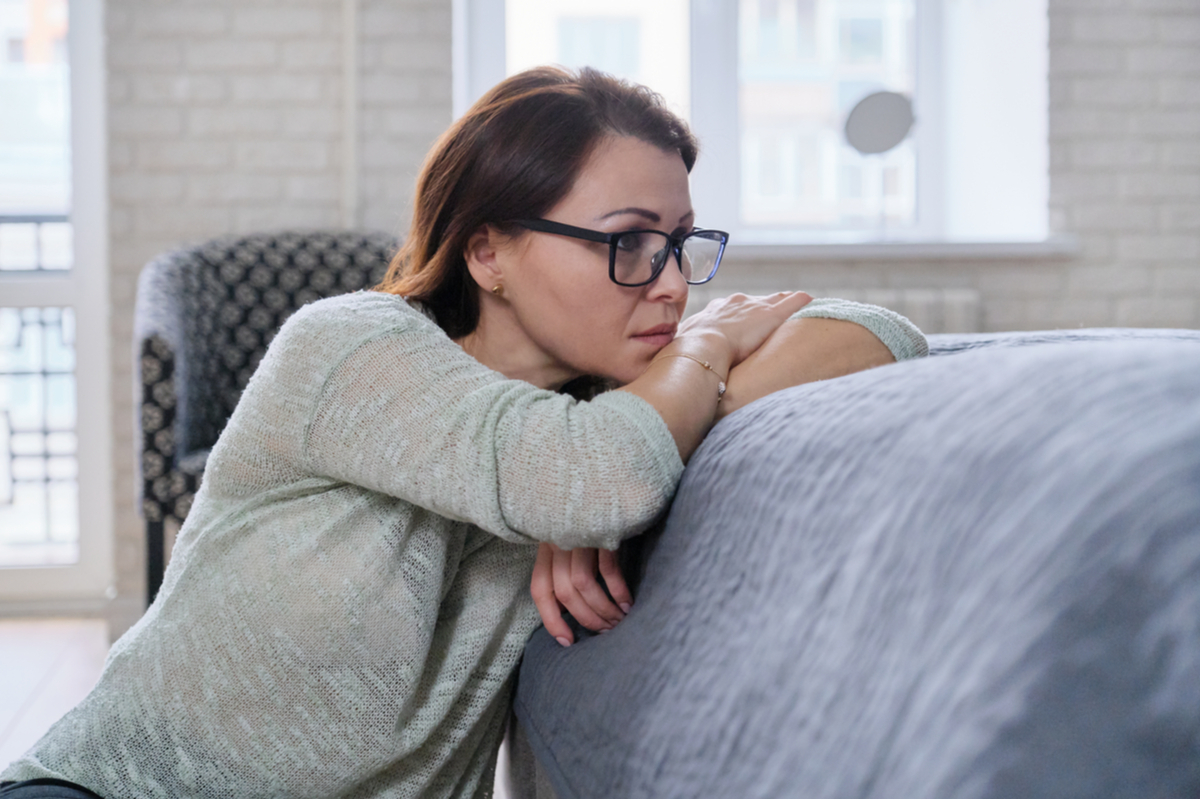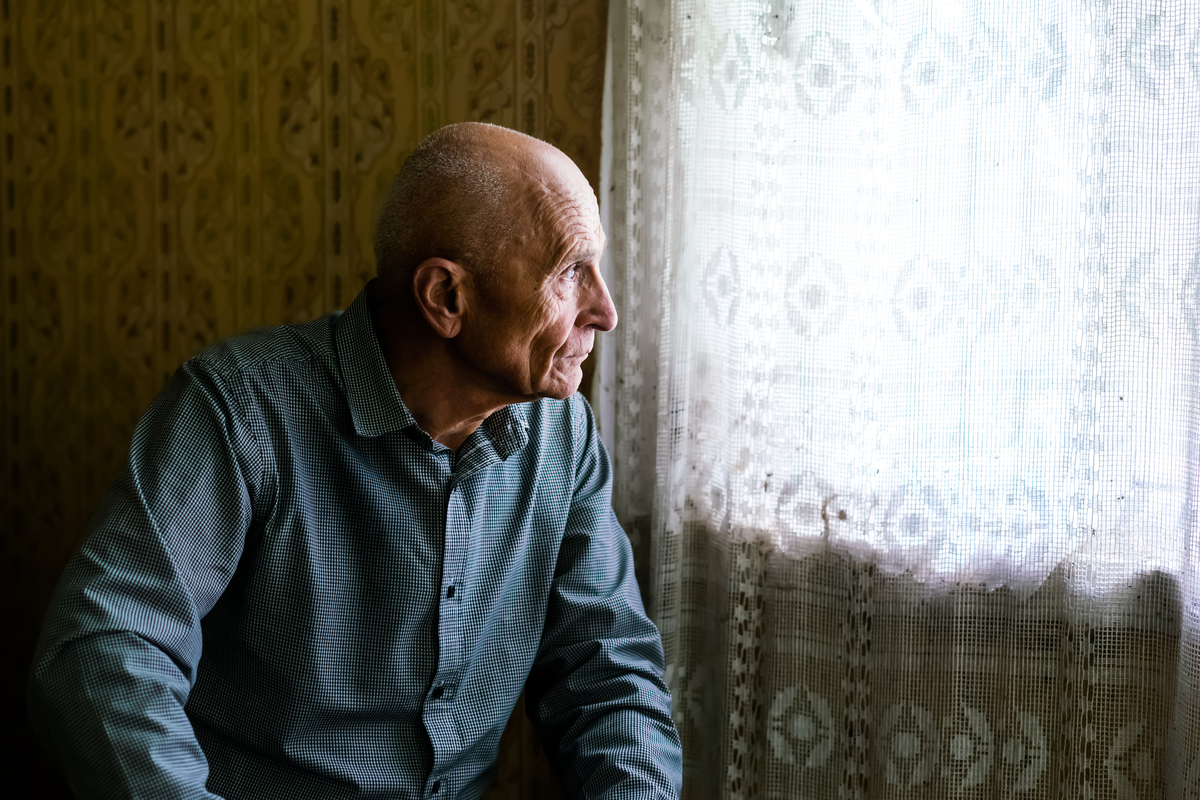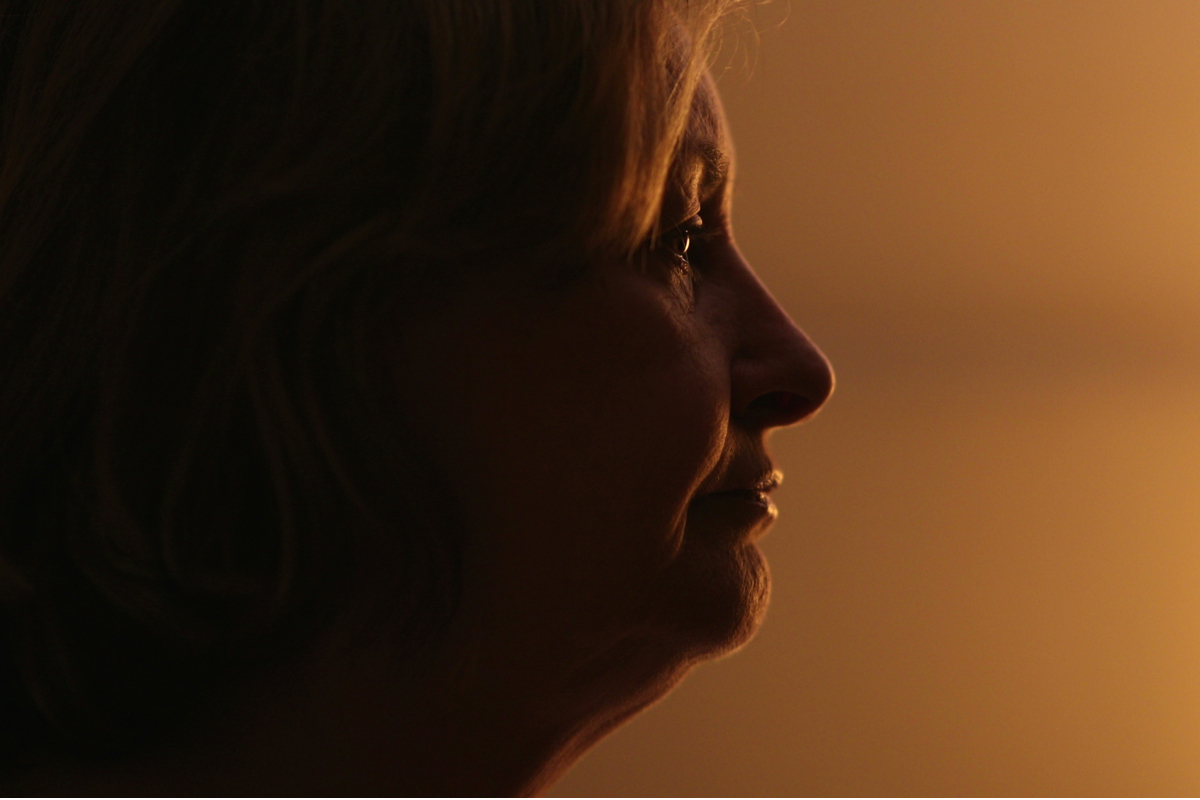3 mga paraan na sinasabi sa iyo ng iyong kalooban na ang iyong utak ay nasa problema
Ang iyong emosyon ay maaaring maging isang maagang tanda ng babala ng isang bagay na seryoso.

Dementia—a term that encompasses the diseases that cause cognitive decline—is a condition on the rise: Over 55 million people worldwide live with dementia, and that number almost doubles every twenty years. Although there is currently no cure for dementia, there are many benefits to catching early warning signs of the debilitating disease. These include access to treatment and clinical trials, as well the opportunity to make lifestyle adjustments that may help preserve cognitive function.
Because dementia affects your brain cells' ability to communicate with each other, familiar early warning signs of the disease include memory loss and confusion. People suffering from dementia may experience trouble speaking, such as using the wrong word for something or forgetting names. But mood changes are a lesser-known potential red flag for dementia. "When brain cells cannot communicate normally, thinking, behavior, and feelings can be affected," the Alzheimer's Association explains. Read on to find out what types of mood changes could be telling you that your brain is in danger.
Basahin ito sa susunod:If You Can't Remember These 4 Things, It Could Be an Early Alzheimer's Sign.
Don't ignore or dismiss these feelings.

Feelings, not just behavior, are affected by damage to the brain cells. "Researchers have long known that depression and dementiago hand in hand," according to Harvard Health. "Yet they've debated over whether the two conditions simply share common causes, or whether depression is an early sign of dementia."
Research now shows that both things are true, and that in addition, "depression late in life may indicate that changes have occurred in the brain that can make us more prone to developing dementia." M. Cornelia Cremens, MD, tells Harvard Health that older people may be in denial about depression, but that "ignoring sadness or dismissing it as a normal side effect of aging could allow potentially treatable memory issues to progress unchecked."
Becoming isolated or withdrawn, experiencing changes in appetite and sleep habits, having suicidal thoughts, and being agitated and irritable are all signs of depression that may be related to dementia.
Apathy is a common, but overlooked, symptom of dementia.

We may associate moodiness with a mercurial disposition—one that goes from happy to sad to angry within a short time frame. But the absence of these moods can be concerning, as well. Apathy—defined as a lack of feeling, emotion, interest, or enthusiasm—can be a subtle early warning sign of dementia.ae0fcc31ae342fd3a1346ebb1f342fcb
New research calls apathy the earliest psychiatric symptom of Alzheimer's, and reports that degeneration in a specific part of the brain (known as the nucleus accumbens) can result in apathy. These findings not only offer up a new early sign of dementia to look out for, but suggest that "disrupting this process could slow the progression of Alzheimer's-related dementia."
Apathy can be hard to diagnose. The symptom can't easily be assessed, and is often misdiagnosed because it's associated with other conditions, such as depression. According to the Alzheimer's Society, apathy as a symptom of dementia may manifest as a lack of interest in talking to people, losing the motivation to perform routine tasks, or seeming uninterested by new information.
The term "sundowning" refers to a different kind of mood change.

"Sundowning" is the term for when people with cognitive decline experience heightened feelings of agitation, depression, and confusion in the late afternoon or evening.
The exact cause of sundowning is not known. "One possibility is that Alzheimer's-related brain changes can affect a person's 'biological clock,' leading to confused sleep-wake cycles," according to the National Institute on Aging. "This may result in agitation and other sundowning behaviors." Other potential causes are fatigue, discomfort, depression, and boredom.
For more health news sent directly to your inbox, sign up for our daily newsletter.
There are ways you can decrease your risk of dementia.

With no known cure for dementia, and multiple symptoms to look out for, it's important to know that there are a lot of habits you can implement to decrease your risk of cognitive decline.
Some risk factors Hindi matugunan, tulad ng edad (ang pagtaas ng panganib pagkatapos ng edad na 65), ang kasarian (ang mga kababaihan na higit sa edad na 80 ay nasa mas mataas na peligro para sa demensya), at ang etniko (ang ilang mga pag -aaral ay nagpapakita na maaaring mayroon ding isang nadagdagan ang panganib sa mga itim na pangkat etniko). Ngunit ang ilang mga nakakagulat na hakbang sa pag -iwas ay maaaring makatulong na mapababa ang iyong panganib ng demensya.
Ipinakita ng mga pag -aaral na ang mahinang kalusugan sa bibig ay isang kadahilanan na may kaugnayan sa pagbagsak ng cognitive; Kasama sa isang inirekumendang pang -araw -araw na gawainbrushing at flossing. At ipinapakita ng kamakailang pananaliksik napagkakaroon ng isang kasamang hayop Maaaring makinabang ang iyong kalusugan sa iba't ibang mga paraan na kasama ang proteksyon laban sa pagbagsak ng nagbibigay -malay.
Kung ikaw o isang taong mahal mo ay nakakaranas ng mga pagbabago sa kalooban na nagdudulot ng pag -aalala, makipag -usap sa iyong doktor. Ang maagang pagsusuri ng demensya ay nagbibigay -daan sa mga tao na kapwa humingi ng tulong at isama ang malusog na gawi sa kanilang pamumuhay na maaaring mapalakas ang kalusugan ng utak at potensyal na magdagdag ng mga taon ng kalidad ng kanilang buhay.
Basahin ito sa susunod:Kung patuloy mong sinasabi ito, maaaring ito ay isang tanda ng demensya, sabi ng mga eksperto

10 madaling paraan upang makatipid sa isang nakapirming kita

